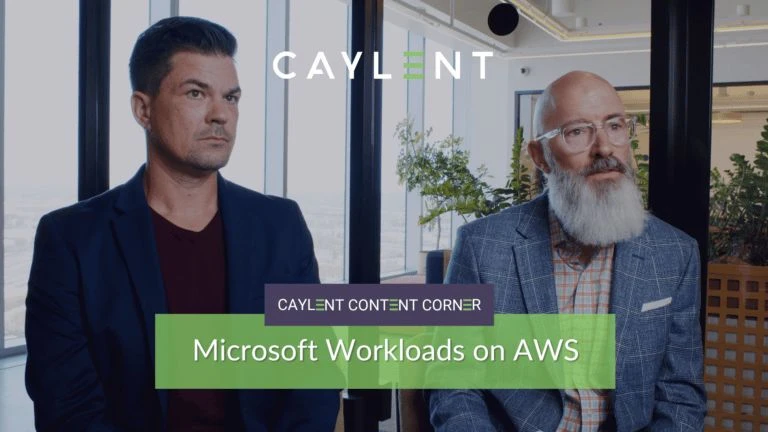In our sales process - a lot of customers have significant Microsoft workloads that they might have on-premise and they're concerned about whether AWS is the right platform to migrate to.
One of the myths definitely is that AWS is only for Linux. Microsoft has been one of the largest workloads on AWS for a very long time. There is a lot of built in AWS tooling that really helps with Microsoft Workloads. AWS Systems Manager as a replacement for Azure SCCM. It's free and there's no cost for you to manage your systems with it.
Amazon Relational Database Service (RDS) is in the best spot it's ever been for Microsoft SQL. We have other things like AWS Managed Microsoft AD so you don't have to manage your domain controllers within Active Directory. It's very convenient. AWS also enables easy integration with AWS SSO and Azure AD for your SSO and things like that are all great and they're fully fledged solutions that work great for Microsoft workloads.
So there’s been a continued pattern of AWS taking away some of the toil that exists in managing any form of workload you might have, allowing a move to manage services there.
In the past, it used to be a little difficult to manage things like domain joins and stuff, but because of services like managed ADs within AWS, it makes it very easy to do domain joins with AWS APIs. Such things make it a lot easier, considering that you used to have to build a little bit of infrastructure around it to create your automation.
The integrations are much more tight and easy to manage now. While Microsoft workloads will work well, people may think of AWS first for other non-Microsoft workloads. The other pattern that we're seeing is that AWS is emphasizing a sort of a freedom from Microsoft, if you will.
So we're seeing incentives to move to maybe running .NET on Lambda and Linux containers and the other thing we're seeing as well, like Microsoft SQL licensing. It might run really well on AWS's Relational Database Service (RDS), but now we're starting to see folks that are using Babelfish to potentially gain freedom from that and run on Aurora PostgreSQL, now that it was released with general availability. So we're hearing a lot from customers asking for our advice, opinions and how to maybe take advantage of this.
It's an opportunity to potentially take our costs from those licensing concerns as well as to increase maintainability, to take advantage of AWS's Aurora PostgreSQL, which has additional capabilities. So it's interesting to see that while the Microsoft workloads are really great to run on AWS there's also a path to modernization for customers that don't necessarily want it not to be their future state.
If you’d like to leverage next generation infrastructure on AWS to take advantage of its flexibility and scalability across a plethora of workload types, get in touch with our team.








